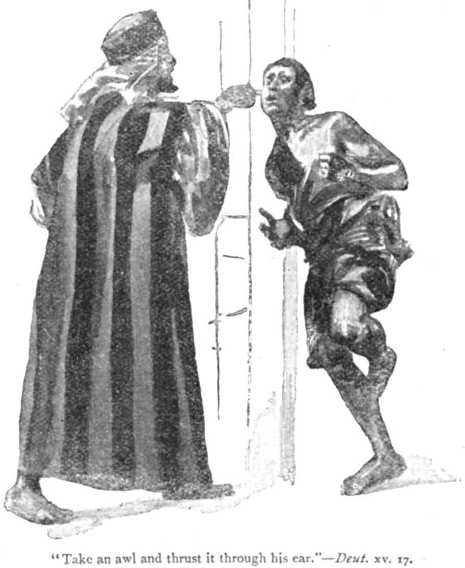
Deuteronomy Chapter 15 tackles the troubling issue of poverty and slavery. I think it has some nice things to say about poverty.
15:7 says, "If there be among you a poor man ... thou shalt not harden thine heart, nor shut thine hand from thy poor brother."
And 15:11 says, (15:11)"Thou shalt open thine hand wide unto thy brother, to thy poor, and to thy needy."
Yes. That's great advice! It still sounds good to this very day. Would you agree?
And then there's slavery.
15:12-17 says, "If thy brother, an Hebrew man, or an Hebrew woman, be sold unto thee.
and serve thee six years; then in the seventh year thou shalt let him go free from thee. And when thou sendest him out free from thee, thou shalt not let him go away empty: Thou shalt furnish him liberally out of thy flock, and out of thy floor, and out of thy winepress: of that wherewith the LORD thy God hath blessed thee thou shalt give unto him. And thou shalt remember that thou wast a bondman in the land of Egypt, and the LORD thy God redeemed thee: therefore I command thee this thing to day. And it shall be, if he say unto thee, I will not go away from thee; because he loveth thee and thine house, because he is well with thee. Then thou shalt take an aul, and thrust it through his ear unto the door, and he shall be thy servant for ever."
Basically, after a slave's seven year term, hook him up and be generous to him as he parts ways. If he/she wants to stay with you, drill a hole through his ear into a door and he'll be your servant for life.
Judging from a modern-day perspective, more than 2,000 years later, a perspective with the hindsight of the Civil Rights era, the American Civil War, and the various practices of slavery before then; slavery has been a big moral issue for humanity. It's still a big issue today; and the arguments even delve into what is called wage slavery - which is basically what everyone calls "working". Anytime another human's labor is owned, and not purchased in any way, that raises the question of slavery and whether it is moral.
But 3,000 years ago when Deuteronomy was written, nobody in ancient Israelite society had these conversations (or at least published them).
So I ask you, the reader, this: What is it that makes it possible for people today to pick up the Bible, read Deuteronomy Chapter 15, and see that one set of passages are moral, and another set isn't?

